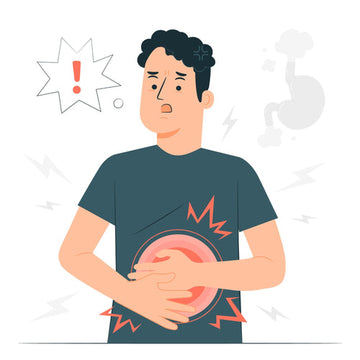You need food to live, and the type of food you eat impacts everything from your cholesterol levels and heart health to your digestive health. It’s standard—we all know that. But at the same time, many experts recommend occasional fasting and state that it can provide a wide range of health benefits (the most notable of which is increased longevity) when performed correctly.
So, what’s happening here? Are fasting trends like intermittent fasting just another health fad that will soon fall by the wayside (going the way of colon cleanses and detoxes) or is there some truth to it all?
Is fasting good or bad for your health?
The Basics of Fasting
Before we talk about the apparent benefits and risks of fasting, it’s important to consider that it’s a pretty broad practice that can be performed in many different ways and for a variety of reasons.
To “fast” is to go without food. To some people, this means abstaining for several days in a desperate attempt to lose weight. To others, it’s a careful, measured, and intermittent process that sees them going mere hours or a full day with little or no sustenance, often with a view to improving their health.
Fasting is also used in some religious practices, such as Ramadan, whereby Muslims abstain from food from dawn to dusk.
Some fasting diets allow for the consumption of calories from tea, juice, and fruit, as well as substances like caffeine. Others insist that you drink only water.

What is Intermittent Fasting?
One of the most popular ways to fast is intermittent fasting, also known as the 5:2 diet. It usually involves eating just 500 or 600 calories for 2 days a week and then eating normally for the other 5 days. There’s also a version known as 16:8, with practitioners cramming all of their calories into an 8-hour window and then fasting for the other 16 hours.
Often recommended for its apparent weight-loss potential, this diet is common among bodybuilders and athletes who believe that it helps them to stay trim.

What is a Juice Fast?
A juice fast is a short-term diet often marketed for the purpose of a short-term “detox”. We’ve already discussed the merits of a detox (or the lack thereof), so we won’t get into that again here, but the idea is that you flood your body with nutrients while depriving it of calories, thus ridding it of “toxins”.
You could also see it as a short-term fast that’s supported by large quantities of natural sugars and nutrients, thus promoting weight loss. It’s definitely not recommended as a long-term solution, and while it can assist with short-term weight loss, it’s typically not something that your doctor will recommend.

What is Alternate-Day Fasting?
As the name suggests, alternate-day fasting involves committing to a full fast every other day. So, you fast on Monday, eat normally on Tuesday, fast on Wednesday, and so on. Although it can be an effective way to lose weight in the short term, it’s not a long-term solution.
It could mean you spend your fasting days thinking about food and dealing with bouts of low energy, only to eat to excess on your non-fasting days. Any kind of obsessive preoccupation with food is not healthy, and it’s much better to find a safe and balanced diet that you can follow over the long term without dealing with excessive hunger.

What is the Warrior Diet?
The Warrior Diet takes intermittent fasting to the extreme, incorporating periods of overeating with a view to mimicking the periods of fasting and overabundance experienced by our ancestors.
It’s extreme, and it’s largely unnecessary. There are better ways to lose weight and there are also safer and more controlled ways to fast.

What is the Eat Stop Diet?
The Eat Stop Diet is a type of intermittent fasting whereby you fast for a full 24-hour period once or twice a week. The fasting days should be nonconsecutive and they require a full fast, as opposed to the 500 or 600 calories consumed during the 5:2 diet.
It’s also recommended that you keep the fasting period as close to 24 hours as you can. So, if you choose Monday as your fasting day, you can eat just before 8 am on Monday morning and then abstain from food until 8 am Tuesday.

What is a Complete Fast?
A complete fast is one where you abstain from everything except water for a limited period of time. It’s often connected to religious practices but is also used as an extreme form of dieting, with the goal being to lose as much weight as possible.
Needless to say, it’s not a recommended practice and can present a number of issues. Not only will your blood sugar and energy levels plummet, potentially leaving you weak and tired throughout the day, but if it is taken to excess it could make you seriously ill. This is especially the case if it is combined with drugs, alcohol, excessive exercise, or exposure to extreme heat.
What Does the Science Say?
Fasting can be beneficial, but it depends on the type of fast, as well as the intended benefits:

Fasting for Weight Loss
Controlled studies and anecdotal reports suggest that fasting can help with weight loss, but there are a couple of potential issues.
One study looked at the effects of alternate-day fasting on non-obese men and women. It gathered 16 participants in total and told them to fast every other day for a total of 22 days. At the end of the study period, subjects lost notable amounts of fat, but the study also noted that “Hunger increased on the first day of fasting and remained elevated”. (1)
It highlights the main issue with fasting, which is that it’s a very hard diet to follow. Many individuals struggle to control their calories while dieting, and asking them to abstain completely for a full day seems destined to fail.
Furthermore, it’s not a long-term solution. While some have adapted diets like 5:2 and 16:8 for extended periods, fasts are typically short-lived, and as they don’t address the root cause of the problem, it means the weight will likely return in the future.
Finally, fasting should not be seen as a replacement for a good diet and exercise. It is not a magic fix and following the 16:8 diet doesn’t mean you can feast on saturated fat and refined sugars for 8 hours and still see progress. It works best when it is combined with regular exercise and a diet rich in fruits and vegetables.

Fasting for Longevity
Although much of the hype around intermittent fasting has revolved around its weight-loss benefits, many of the early headlines touted its ability to improve longevity.
BBC journalist Michael Mosley is responsible for getting many people into intermittent fasting. It all began with a documentary titled Eat Fast, Live Longer and was followed by the book The Fast Diet, both of which highlighted the diet’s association with increased life expectancy.
These claims are supported by a variety of medical studies. In one such study, published in 2021, researchers found that fasting could increase the levels of Christensenella, a type of gut bacteria that has been associated with improved longevity. Another study, published in the same year, drew similar conclusions and noted the positive effects that fasting could have on the immune system and heart. (2)(3)

Fasting for General Health
One of the reasons that fasting could help you to live longer is that it’s known to support a variety of bodily processes, including those related to metabolism.
A 2022 study found that fasting for a period of 24 hours could decrease energy expenditure while increasing growth hormone levels. It may also balance insulin throughout the day and help those prone to high blood sugar.(4)
In animal studies, intermittent fasting has led to notable improvements in cognition and brain health, with one rodent study concluding that chronic fasting could improve “depression and anxiety behaviors” and could be seen “as a therapeutic tool for known risk factors of behavioral changes, including neuroinflammation, synaptic dysfunction, vascular dysfunction, insulin resistance, and neurogenesis”.

Is Fasting Safe?
There are some clear risks associated with fasting, but there are also some issues that you might not have considered.
For instance, studies have suggested that people who undergo regular periods of fasting are more likely to require gallbladder surgery at a later date.
It may also wreak havoc on your digestive health, which is an issue if you have existing digestive issues. If you struggle with your weight, fasting could make you more prone to overeating during non-fasting days. Even if we assume that it helps with weight loss and longevity, it doesn’t mean you’re immune to the damage caused by a diet rich in saturated fat and refined sugar. So, any benefits you get by fasting could be offset if you spend your non-fasting days feasting on junk.
It's important, therefore, to make sensible food choices when you‘re not fasting. Make sure you’re getting enough fiber and protein and that you’re substituting refined carbs for complex carbs. You should also drink plenty of water during your fasting days and refrain from overexerting yourself.
Individuals with preexisting health conditions and those taking certain medications are more likely to experience issues while fasting. Consult your doctor before undergoing any type of fasting diet.

What’s the Best Type of Fast?
It depends on your goal and level of tolerance. For many, the 16:8 diet is the best, as it’s the easiest one to follow and carries the fewest risks. The science is a little spotty, with some studies suggesting that it can promote weight loss and longevity and others suggesting that it’s the same as good-old calorie restriction.
If we’re talking about clinical studies and diets that are supported by medical professionals, 5:2 likely leads the way. It seems to be both effective and safe, with the latter supported by the fact that you never completely abstain and always have at least 500 calories on your “fasting day”.
Summary: Is Fasting Good/Bad for Your Health?
There is a lot of exciting research out there concerning fasting. Depending on which studies you read, which opinions you believe, and how you interpret everything, it’s either the secret to weight loss and longevity or an overhyped and potentially dangerous practice.
Either way, humans have been fasting for thousands of years and it could provide a number of benefits. If nothing else, it warrants more research.
If you’re planning a fast, make sure you consult with a medical professional first. Consider preexisting health conditions and medications, as well as weight and age, as all of these can impact how effective or safe the fast is likely to be.






